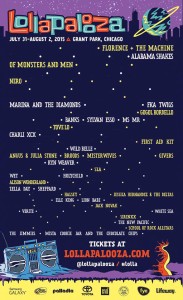So Lisa Vogel announced this week that this year’s Michigan Womyn’s Music Festival will be the last. Vogel has been telegraphing her desire to see the Festival energy evolve into something new for a few years now, and this announcement has been long anticipated. In some ways it’s a relief, like the other shoe dropping.
Michfest has been ground zero throughout most of the current millennia in the left wing’s attack on women’s rights, which looks different than the attack coming from the right. At issue is whether women may set their own intentions and personal boundaries, or whether these should be subject to a sign-off from men on the left. Although Vogel is entirely within her legal right to set the parameters of the Festival, there have been persistent efforts to change those parameters. At times these efforts have turned ugly, such as the appropriation of African-American segregation experience to shame compliance with the agenda of people in far different circumstances. At times these efforts have veered into illegal actions, such as blacklisting performers and vendors, which became illegal in the United States in the aftermath of McCarthyism. Usually these efforts have focused on the court of public opinion, using rhetorical points real, fabricated, and irrelevant to convince women and men who know little about Michfest that its supporters are ill-informed bigots who just don’t understand why they should be focusing on “womyn” as self-identity rather than biology, and that the human rights of trans women hinge on whether they are welcomed at the Michigan Womyn’s Music Festival.
Michfest was started in the context of the Womyn’s music industry, which was a response to the fact that women were shut out of the music industry as a whole or else forced to sexualize their music and presentation for male consumption. The idea was to promote music by women for a female audience as an alternative. This meant that festivals showcasing these women performers would, in most cases, be for women only. Organizers did not want to cater ticket sales to a male audience and hence be dependent on male approval for financial survival.
Over the past ten years Vogel has been nicely asked and rudely demanded to shift the target demographic of the Festival. She (and Michfest core supporters) have said no and no and no and no. The ways trans women’s and biological women’s interests dovetail and conflict are interesting but in this context not particularly relevant. The organizers considered the pros and cons and said no. Nowhere is the old adage that “when a man says no it’s the end of discussion but when a woman says no it’s the start of a negotiation” more clearly exemplified than with the Michfest controversy.
A few years ago Vogel admitted publicly what regular Festival goers already knew: the integrity of biological womyn-only space at Michfest had been compromised and trans women regularly attended the Festival. She emphasized that the Festival would continue to be directed toward non-trans women and asked trans women to respect this intention. You would think that would have diffused the issue, but instead it became intensified. The pressure mounted to “change the intention.” Women not only had to submit to their boundaries being violated, their arms were being twisted so they would declare that the violators were welcome.
Predictably, some of the more vocal transgender activists are crowing about the imminent demise of Michfest, calling it a vindication of their political tactics. Some who support the Michfest intention are also blaming transactivists for this development. I’m not so sure they deserve credit. Vogel’s announcement comes at the fortieth anniversary of the Festival, and forty years is a long time to do something. I would wager the constant irritant of the LGBT forces inveighing against the evils of The Intention was a factor, but most people would like to retire after forty years of doing the same thing. When I was at Michfest in 1985 no one could believe the Festival had lasted ten years. Ten years! Women kept repeating this because they couldn’t believe that a scruffy camp-in-the-woods music festival could hang in so long, let alone an all-women’s festival celebrating lesbian culture.
Michigan Womyn’s Music Festival is a lot like parachute jumping: you either say “That was fabulous; I’m so glad I did that” or you say “That was fabulous; I have to do that again.” I belong to the first camp. Yet even though I’ve never been back to Michigan, I can’t believe that pulling a ripcord could have such a positive effect on my life as that week. I can’t imagine what my life would have been like without biological women’s space, and I feel so sorry for the millennial genderation of women who have not had the opportunity to experience this freedom.
The question on many women’s minds is what the conclusion of Michfest means for women-only spaces. The Festival has been taking it on the chin for other women’s gatherings that exclude trans women, and the apprehension has been that if Michigan caved the focus of “inclusion,” as they call this tyranny, would continue to shift until all biological women’s space was destroyed entirely. But Michigan hasn’t exactly caved, and more and more women are getting tired of abuse from the left. Hopefully the opponents of women’s rights of association will just declare victory and go home. I give them that. They can smirk and dance on the grave of the Festival all they want, but that isn’t going to stop women from defining their space and defending their boundaries. That fire has already been set. I think of women-defined space as one of those brush fires that get below the topsoil and spread into unpredictable places. Stamp out the flames one place and they only flare some distance away. They cannot identify or redefine or dialogue or include us into submission. At this point, failure really is impossible.
Note: Thanks to Lisa Vogel and all women who have supported Michfest. Thanks to Gender Identity Watch and GenderTrender for reporting on this issue.


